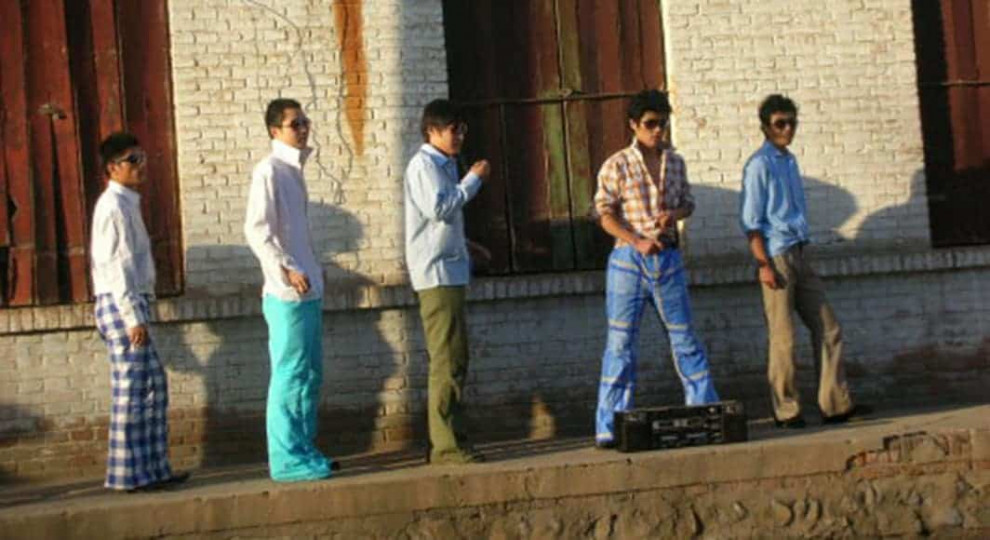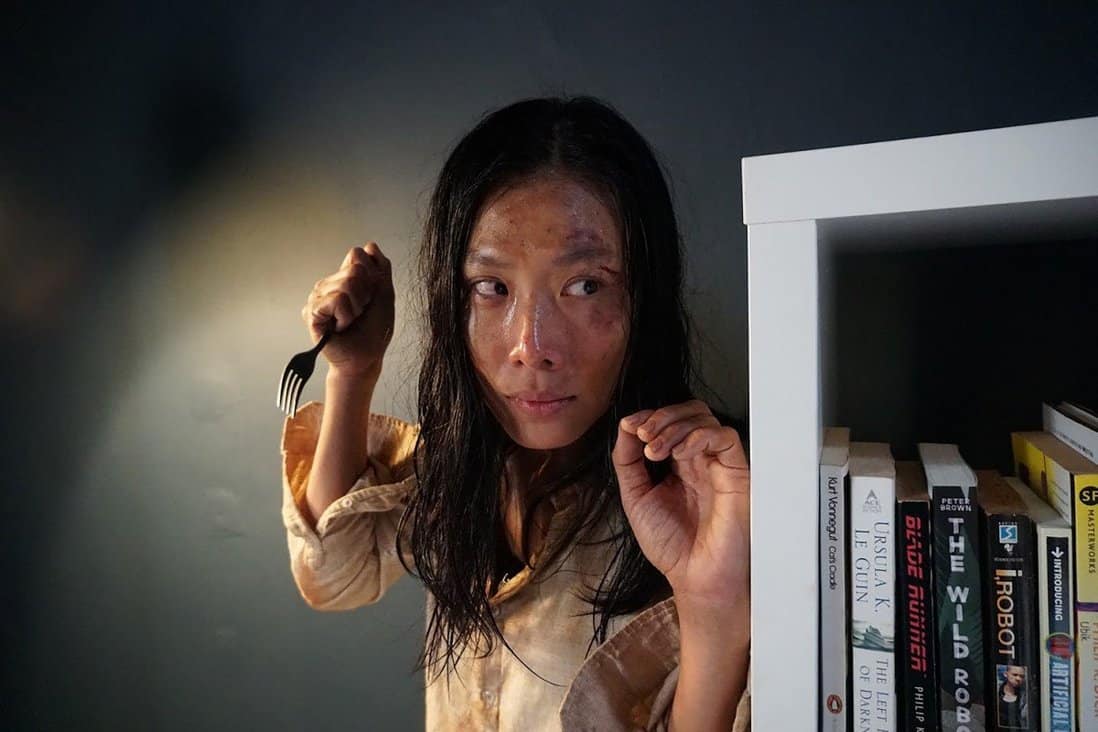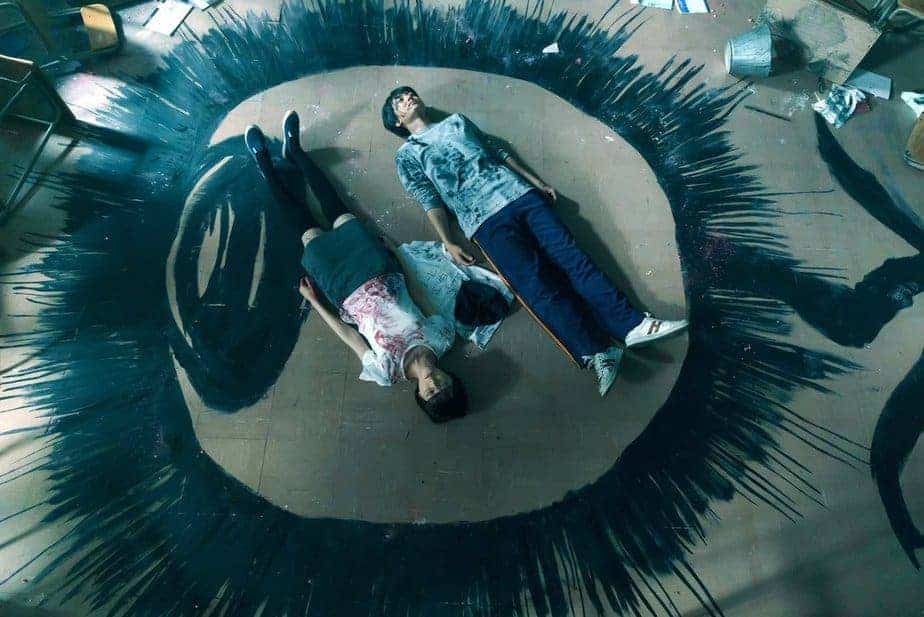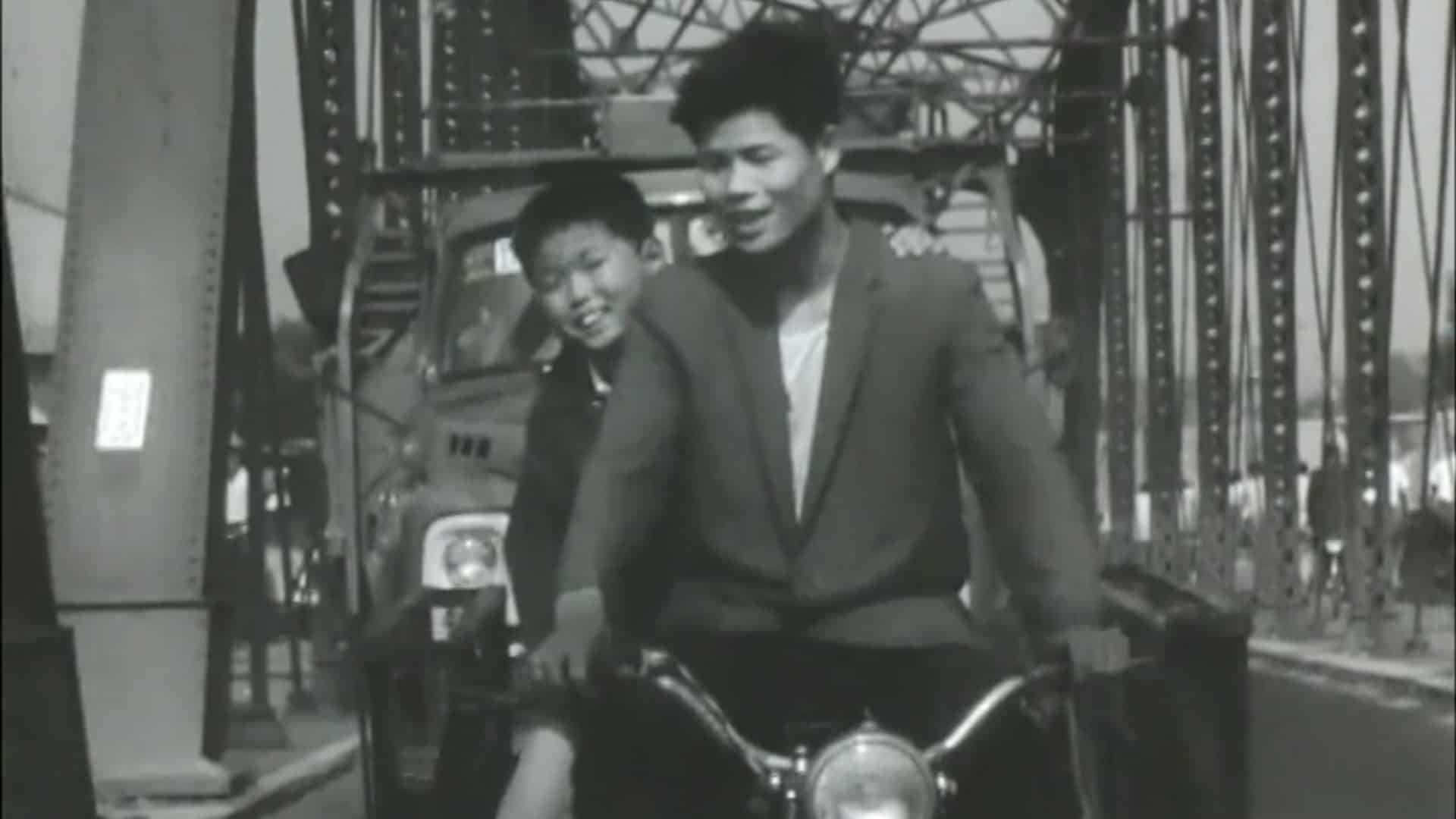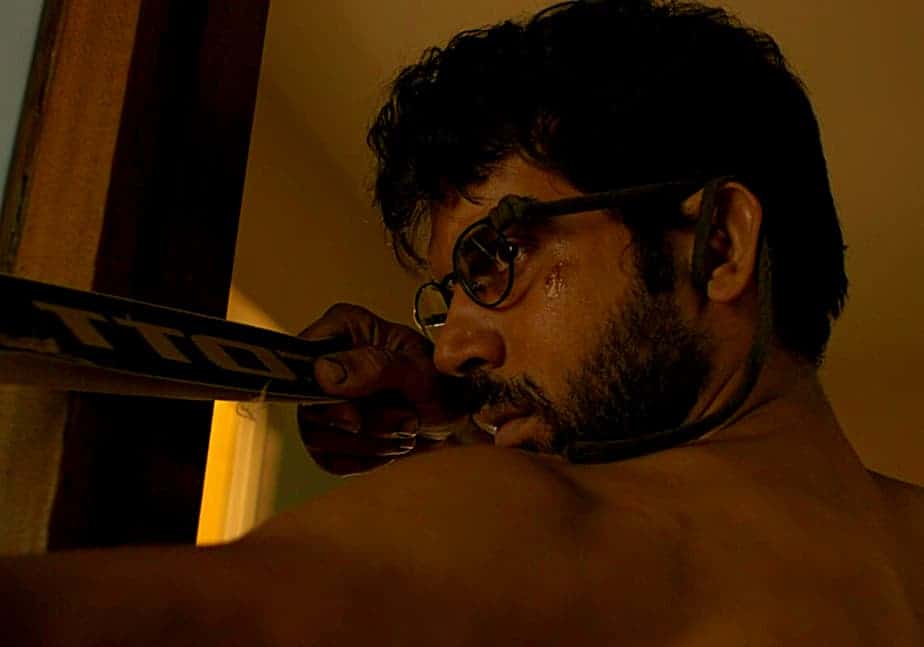Pema Tseden has, currently, set himself on the path he always wanted, of portraying the real Tibet through a combination of accuracy and artistry. Before becoming famous and financially able to follow his own path, however, he also had to do some commissioned work, with “Flares Wafting in 1983”, a TV movie for China Movie Channel in the Putonghua-language (and not in a Tibetan-dialect as his latest films), falling under this category.
The script is based on the homonymous novel by Wang Shiyue, and revolves around two brothers growing up in a small village. The older one, Zhongqiu, has taken the exams to be accepted to a technical school in Beijing, a potential success that would be a first for the village. Expectedly, Zhongqiu, who also likes to paint, is under much pressure from both his father and the local community to succeed. The younger one, Liuyi, who also functions as the narrator of the story, is a true rascal who seems to know every gossip in town and uses them to “manipulate” both his father and Zhongqiu.
The latter, as every other young man in the village, is in love with the local bookstore clerk, Lijuan, but is too shy to express his feelings. The local bully, Zhu Guowei, also wants her for himself, but instead of talking, he spends his time dancing disco in front of the bookstore with his “gang”, wearing flares, the pants that have just become a huge trend in the village during the summer of 1983, along with disco music. Zhongqiu cannot afford flares, in another element that adds to his discomfort.
Eventually, and through Liuyi's benevolent manipulation, he manages to acquire some, just in time to participate in a disco dancing competition that pins the local youths against the ones from a neighboring village. Eventually, the night of the competition arrives, but proves much more eventful than anyone could imagine, ending up with Zhongqiu leaving the village amidst questions regarding his character and an issue left to his father to handle. Liuyi, however, still believes in his brother.
In probably the most mainstream work in his filmography, Pema Tseden creates a coming-of-age portrait, which is, however, enriched with a number of subtle cultural and social comments. The relationship between the two brothers and particularly the way Liuyi always manages to “trick” the educated, intelligent but timid Zhonggiu, with his street smarts is the element that takes care of the entertainment aspect of the movie, since their interactions are usually hilarious. The parallel, unfulfilled “romances” also move in the same way, as does the linear story, which eventually becomes quite dramatic.

The main comment of the film, about the way youths have to adapt to reality and abandon their idealistic dreams eventually (particularly in such a setting as the remote village which presents very few opportunities for any kind of beneficial change) is quite evident and well presented in the simple style of the narrative. However, Pema Tseden has also included two other, subtler comments. The first one revolves around the consequences of westernization, which are presented here though the clothing and disco music, which are the elements the story implies led to Zhongqiu's demise. Furthermore, the way a number of youths dance to disco in their flares in front of the bookstore seems to imply the ridiculousness of “importing” western pop culture in such a setting, with the “practitioners” looking more absurd than funny or cool (which is how they perceive themselves). Lastly, the fact that Lijuan is considered more beautiful than the rest of the women in the film due to her fairer skin (more western if you prefer) also adds to this comment.
At the same time, and despite the desperate efforts of almost all youths in the village to stand out or do something different with their lives, custom, tradition and the power of the previous generation do not seem to allow them to do so. That the elder brother is eventually forced to accept and abide by these rules seems like another, much conservative comment, while the fact that his fate was sealed from only one (bad) decision), also moves towards the same simplistic direction, both contextually and aesthetically.
Pema Tseden has already proven his ability to direct childrenwith “The Silent Holy Stones” and this trait is also quite obvious here, with 11-year-old Wan Chang Hao giving a very entertaining performance as Liuyi, in essence anchoring the film with his mischievousness and occasional naivety. En Bai as Zhongqiu gives a more measured and subtle performance, but is also quite convincing.
The cinematography focuses occasionally on realism, occasionally on impression, as per the mainstream “rules”, with the same applying to the editing, which induces the movie with a rather fast pace. The combination with disco also has the title functioning like a music video occasionally, in another mainstream element.
“Flares Wafting in 1983” is completely different than what Pema Tseden has gotten us used to with his other films, who are following a distinctly art-house path, for the most part. However, the outcome of this effort is also quite enjoyable and sterling, to the point that ti looks like nothing like a TV-production and, additionally, is bound to make the viewer think what would have happened if Pema Tseden had decided to follow a more mainstream path. I gather that he would be as brilliant.


